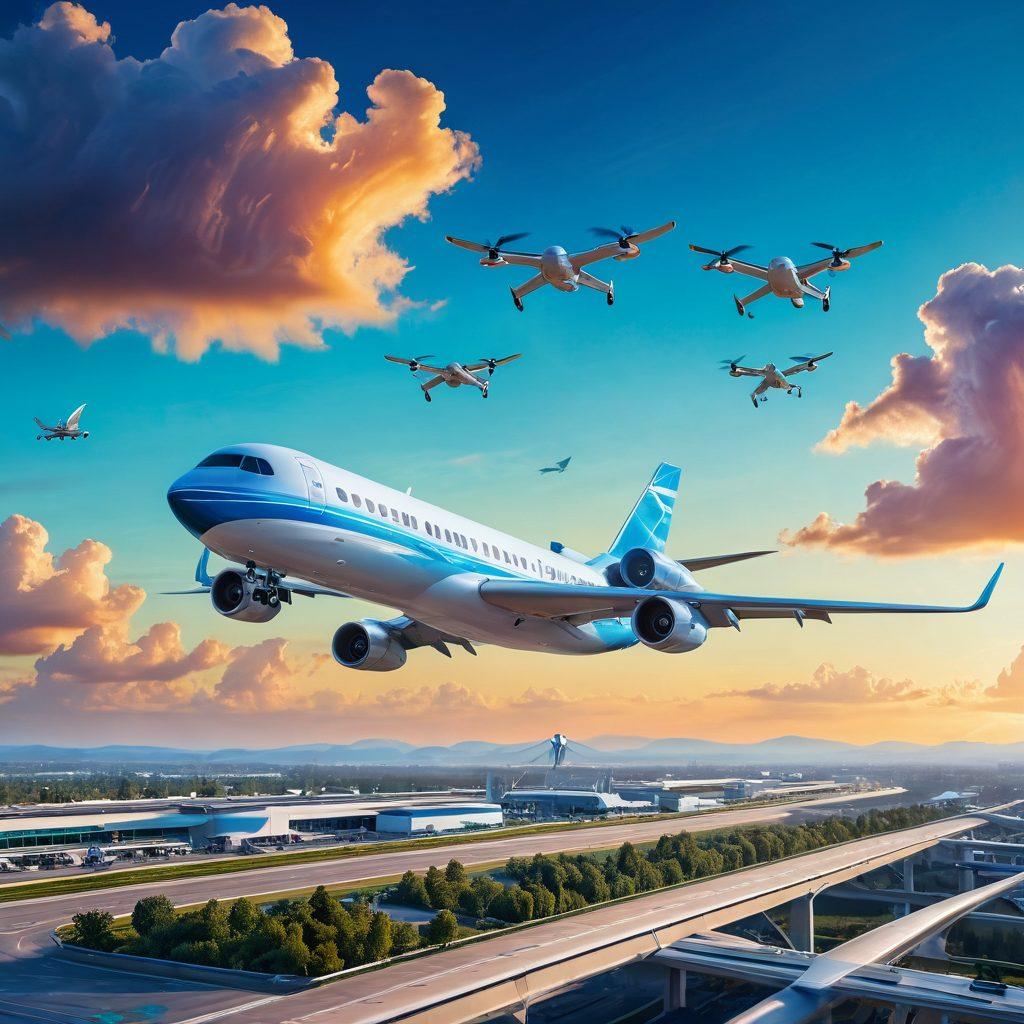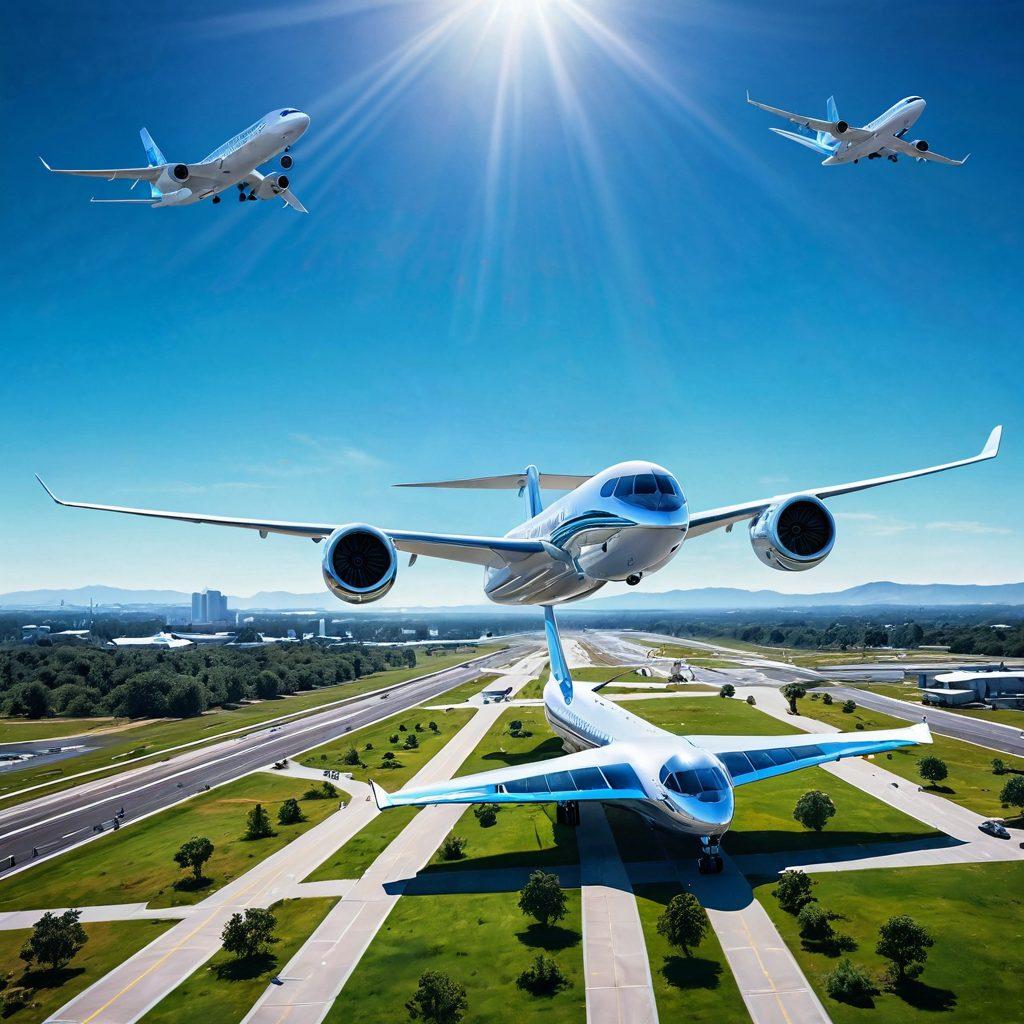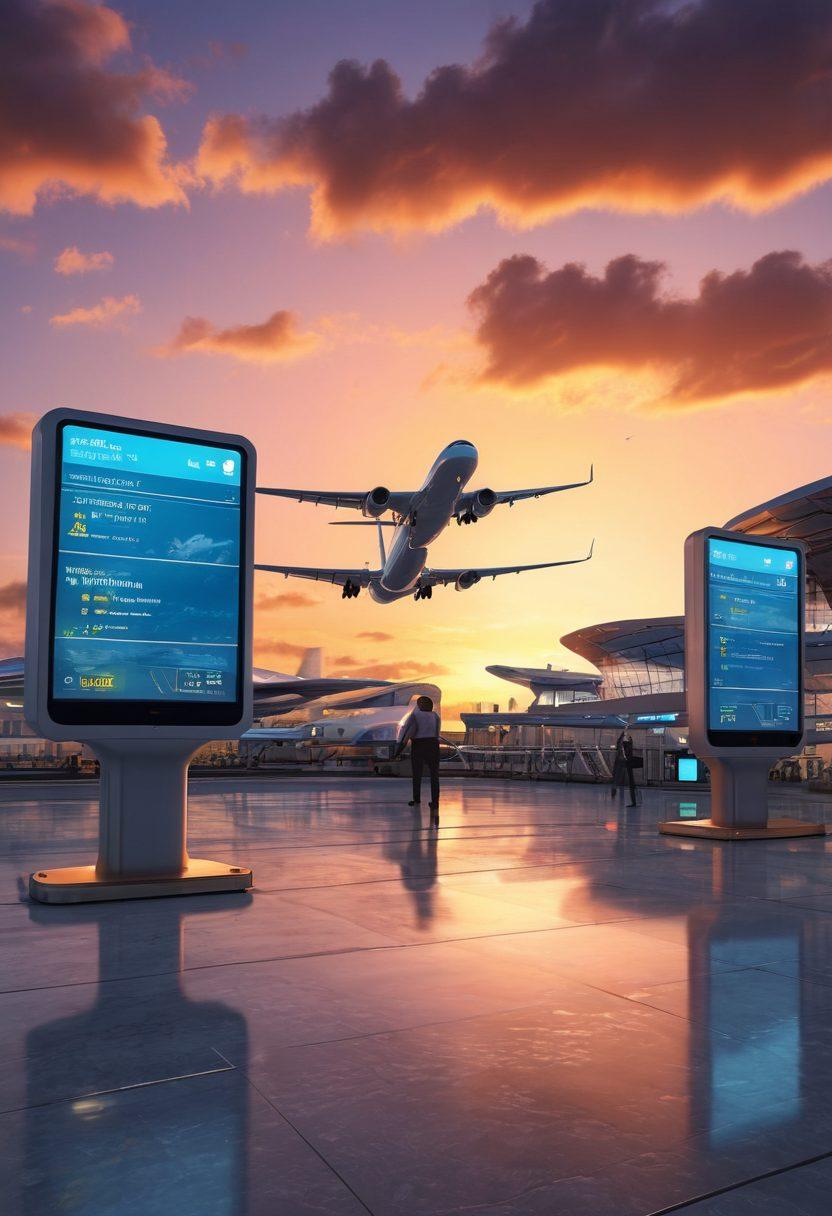Soaring into the Future: Innovations Shaping the Aviation Industry
As we look up into the vast expanse of sky, it’s hard not to marvel at the incredible feat of flying. Air travel has come a long way since the Wright brothers took their first flight in 1903. Today, the aviation industry stands at the precipice of an exhilarating transformation, driven by groundbreaking advancements in technology. With the rise of aerospace innovations, the way we perceive and experience air travel is about to change forever. So, buckle up! We’re about to embark on a journey to explore the cutting-edge technologies reshaping our skies.
Imagine boarding an aircraft that is almost entirely self-piloted. Sounds like science fiction, doesn’t it? But in reality, automation in aviation technology is paving the way for this thrilling possibility. Many airlines are now experimenting with autonomous flight systems that enhance safety and efficiency while reducing operational costs. As we become more accustomed to the rapid pace of change in the airline industry, one must ask - are we ready to embrace the aircraft of the future? Will these advancements help or hinder the artistry of flying?
Speaking of efficiency, let’s dive into another revolutionary force in air transport: sustainable aviation. Perhaps the most pressing question facing aviators today is: how do we take to the skies without harming our planet? Innovations in biofuels and electrification are steering us toward a greener aviation future. Companies are investing in hybrid-electric aircraft and developing sustainable fuel options, aiming to significantly lower carbon footprints. The challenge lies in achieving this balance—after all, can the aviation industry remain sustainable without sacrificing the convenience that modern travelers expect?
Let’s not forget about the role of digital technology in revolutionizing airline management. From advanced flight booking systems to customer service chatbots, digital solutions have transformed how we interact with airline services. Big data analytics and machine learning are optimizing flight schedules, enhancing safety measures, and predicting passenger behavior. Just think about how much easier it is to find the best flight deals now compared to a decade ago. With these tools at our disposal, what could the future hold for airline services and the relationships they build with their customers?
Ultimately, all these advancements converge into a singular vision for commercial aviation—the aim to make air travel more accessible, efficient, and enjoyable. Aviators of the past struggled with the limitations of their era, but today, pioneers in aviation consulting and solutions are driven by the desire to break those barriers. With more technologies at our fingertips, the dream of global aviation connectivity becomes increasingly attainable. So, as we look to the horizon of our flying future, how will we shape this journey together?
The Future of Flight: How Innovations Are Reshaping Aviation Services
As we navigate through the ever-evolving skies of innovation, the future of flight is becoming not just a dream, but a reality shaped by groundbreaking advancements in aviation services. From electric aircraft to artificial intelligence steering airline management, the aviation industry is ablaze with possibilities. Whether you are an avid aviator or simply someone who enjoys the wonders of air travel, one thing is clear: the way we perceive and experience flight is undergoing a remarkable transformation. Have you ever wondered how these changes will impact your next journey?
Imagine stepping into an aircraft that not only lifts off into the blue skies but does so with minimal environmental impact. This isn’t merely fanciful thinking but a bold stride towards sustainability within the aviation sector. With innovations like electric planes and sustainable aviation fuels, airlines are determined to reduce their carbon footprints and offer timely solutions to climate change. Consider this: Can the thrill of flying coexist with the need to protect our planet? Yes, and we are on the verge of witnessing this incredible balance.
Moreover, the aviation technology landscape is continuously evolving, bringing with it enhanced safety and efficiency. Think about the role of data analytics in airline services. Airlines are now using sophisticated algorithms to predict weather patterns, optimizing flight paths and reducing delays. As travelers, we are accustomed to a world where time is money, and delays can shift our entire day. With these innovations, can we expect to see smoother flights and happier passengers? Undoubtedly, the rise in technology means flying could become less of a hassle and more of a joy.
But it doesn’t stop at just aircraft technology. The impact of artificial intelligence on airline management has been phenomenal too. AI-driven systems are taking the wheel when it comes to customer service, smoothening out the travel experience from booking tickets to baggage handling. Imagine a scenario where AI solutions offer real-time updates on flight statuses and personalized travel itineraries. That’s not just efficiency; it’s revolutionizing air transport. How can we harness the power of AI further to enhance our flying experiences?
In conclusion, as we soar into the future of commercial aviation, we remain at the forefront of a rapidly shifting landscape. The combination of sustainability, technological advancements, and strategic airline management will reshape the way we interact with aviation services. For aspiring aviators and frequent flyers alike, it’s an exhilarating time to embrace the changes, understand the innovations, and be a part of this incredible journey. What are you looking forward to the most in the future of flight? Whether it’s greener skies or seamless travel, one thing remains sure — the future of aviation is bright and brimming with opportunity!
Navigating Change: The Role of Technology in Modern Airline Management
As we stand on the threshold of a new era in the aviation industry, one cannot help but marvel at how technology has become the enabler of unprecedented change. The role of technology in modern airline management is transforming how airlines operate, interact with customers, and manage their fleets. With the rapid evolution of aviation technology, the future of air travel looks brighter than ever, but what does this mean for aviators and passengers alike?
Imagine a world where airlines can predict flight delays before they happen, enabling travelers to manage their time better and enhance their flying experiences. This level of foresight is now a reality, thanks to smarter data analytics and artificial intelligence. Airlines are harnessing the power of data to fine-tune their operations and provide a seamless experience for air transport. As we drill down into the intricacies of aviation management, we will explore how these innovations are shaping the airline industry for tomorrow.
But it’s not just about data; it's also about enhancing airline services. Technology is redefining customer experience in countless ways—from mobile check-ins and personalized offers to chatbots providing real-time assistance. Take a moment to consider your last flying experience: how many touchpoints did you have with technology during your journey? As technology embeds itself deeper into airline operations, the age-old question lingers: how can airlines prioritize human connection in a tech-dominated world?
Moreover, the importance of sustainability in the aviation industry cannot be overlooked. As commercial aviation expands, the debate about its environmental impact is more relevant than ever. Innovative approaches such as sustainable aviation fuels and electric aircraft are paving the way for greener flying experiences. It's a bold move, but the question remains: can these aviation solutions balance the demands of air travel with environmental sustainability? This brings us to this crucial point—aviation consulting is now tasked with guiding airlines to adapt and thrive in an eco-conscious market.
In conclusion, the evolution of airline management through innovative technology is not just reshaping the airline industry; it is crafting the very nature of air travel itself. Soar above the paradigm of traditional models and consider the future of flying where efficiency meets eco-friendliness. As we navigate these changes, the challenge for airlines is not merely to keep pace with technology, but to leverage it to create a better flying experience for the global aviation community. How will your next flight be different? Keep your eyes on the sky, for the future of aviation is just getting started!


